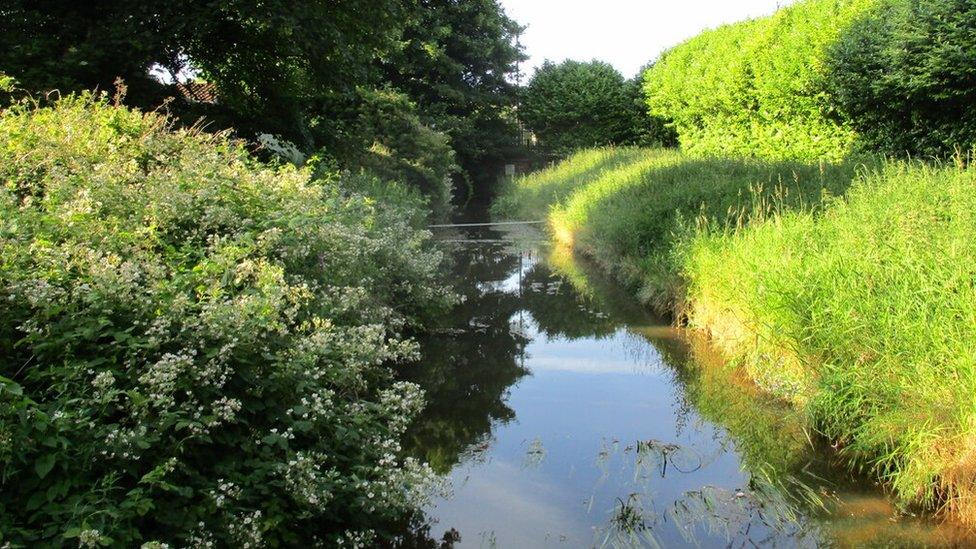Wiltshire scheme aims to protect unique chalk streams
- Published
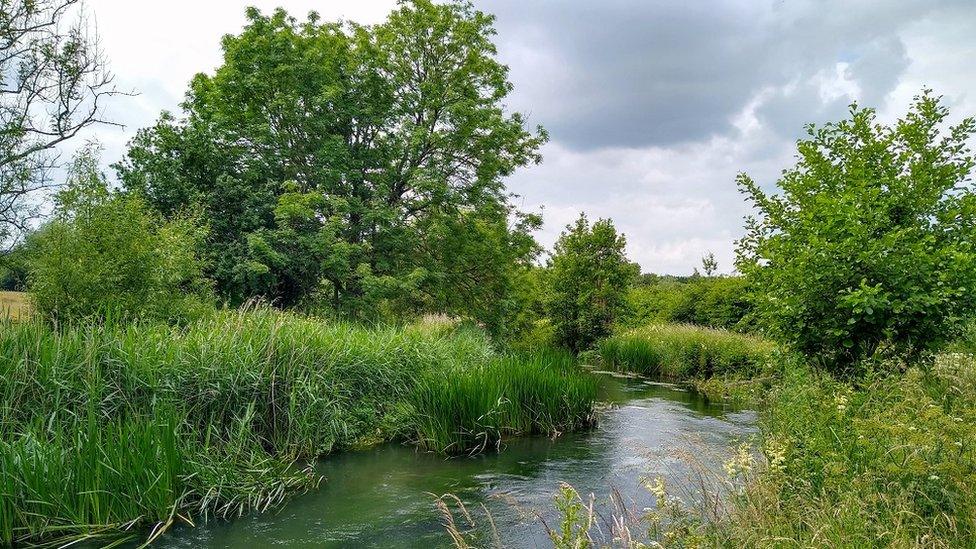
The Wylye River is one of Wiltshire's chalk streams, which are unique habitats for wildlife
Farmers and charities are working together on a project to improve the condition of chalk streams.
Wiltshire's chalk streams host a huge amount of wildlife and despite looking clear, they have been failing to meet "good" ecological health status. , external
The Wylye Chalk Stream Project involves farmers, the Wessex Rivers Trust (WRT) and the Wiltshire Wildlife Trust (WWT).
Alice Eley, WWT's water team manager, said: "They [chalk streams] support very unique biodiversity."
The project, which Ms Eley said is of an "unprecedented" scale, has been funded by the government's Landscape Recovery scheme.
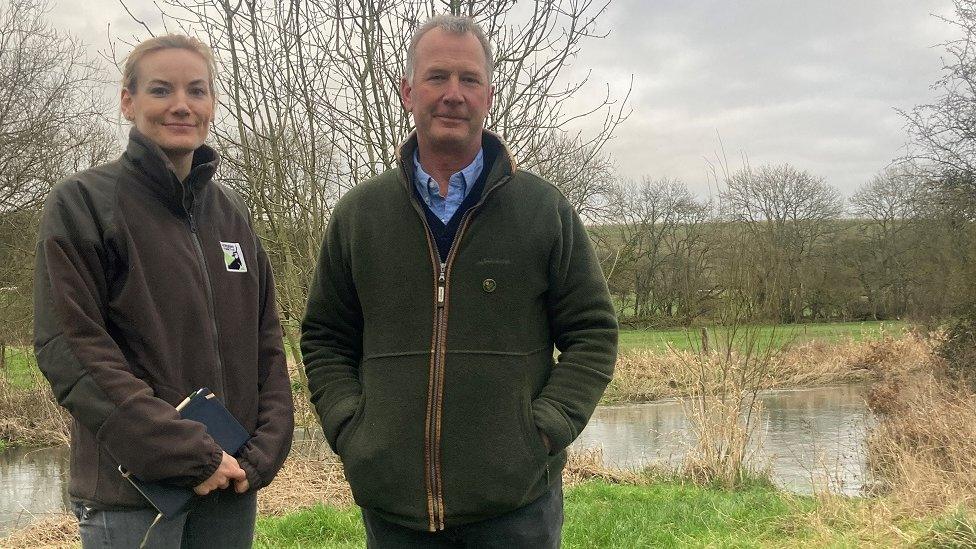
Alice Eley from the Wiltshire Wildlife Trust and farmer Josh Stratton are both involved in the project
Pollution has 'devastating impact'
Some of the wildlife supported by chalk streams and rivers in Wiltshire, such as in the Wylye Valley and Salisbury Plain, include salmon, brown trout, otters and water voles.
Chalk streams come straight from the aquifer, a type of rock or sediment which holds groundwater, with the water filtered through the chalk, giving it unique features like a neutral temperature all year round.
Ms Eley said the conditions helped certain plants to thrive, such as water crowfoot (Ranunculus), "which is what these rivers are designated for," she added.
"They [chalk streams] react very strongly to pollution. A small water quality change can have a devastating impact on chalk streams," Ms Eley said.
Variety of habitats
Josh Stratton is one of the group of farmers in the area involved in the project - they want to return the river to it's natural course and closer to the environment that it would have enjoyed a century or two ago.
On one stretch, he has put in gravel to make it shallow in parts, but also made deeper areas, as well as sections that are fast or slow-flowing.
Changes like this provide a larger variety of habitats for wildlife, including improving conditions for fish spawning.
"This land is almost post-agricultural so my tonnes per hectare of water voles will be increasing not my tonnes per hectare of wheat," explained Mr Stratton.
He said he is excited about the project and pleased that the government has put in a framework, but said the science helps too: "Having real scientists to make it work for farmers has helped. You can't expect farmers to do that in isolation."
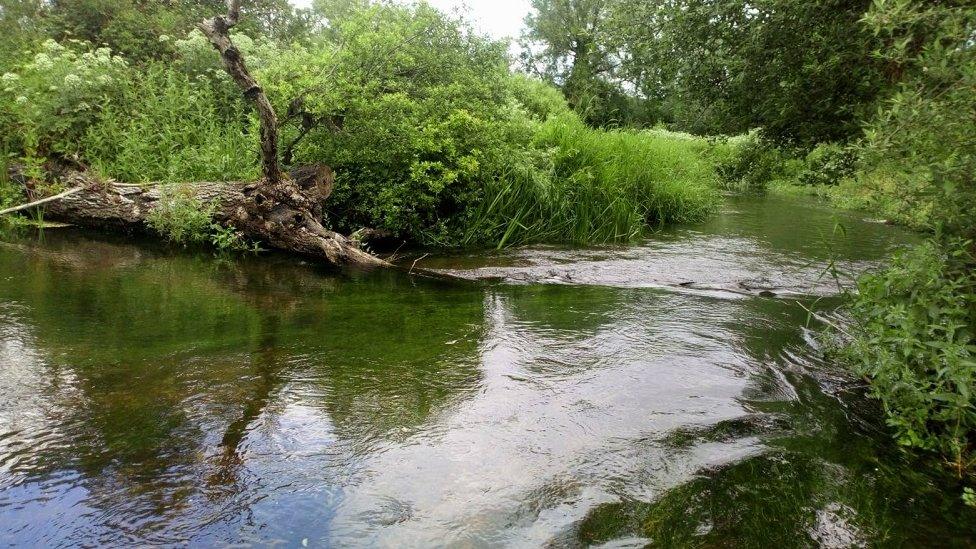
A total of 85% of Europe's chalk streams are in the UK, with a number of those in Wiltshire
The Wylye Chalk Stream Project is one of 34 successful schemes to come from the Landscape Recovery fund.
Ms Eley said: "Farmers are almost the lifeblood of the river - all of our rivers go through farmland.
"We want farmers to give rivers space - to grow, move, flood out, to do all the things a natural river should do.
"It is not always possible because of development or good agricultural land, but where it can de done, it can benefit downstream."

Follow BBC West on Facebook, external, X, external and Instagram, external. Send your story ideas to: bristol@bbc.co.uk , external
- Published29 November 2023
- Published20 September 2023
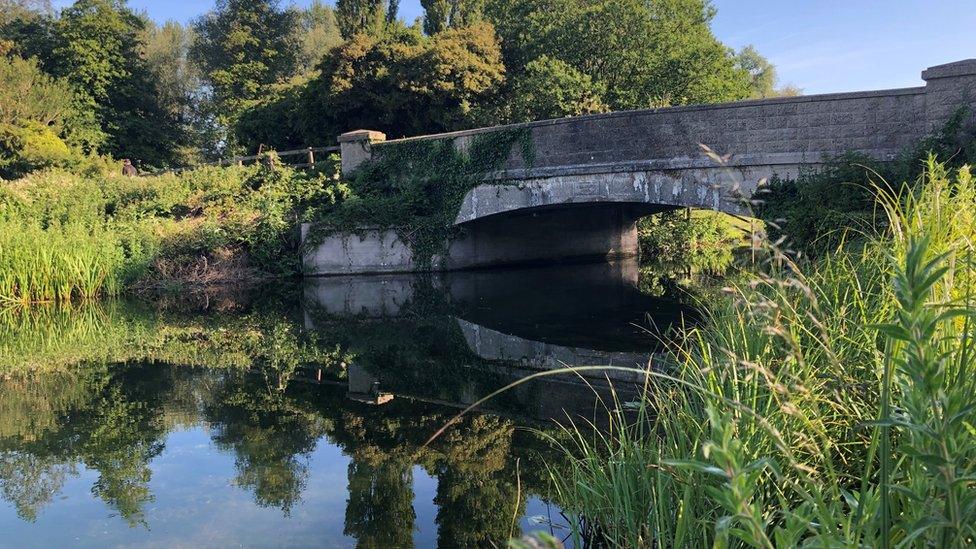
- Published5 September 2023
